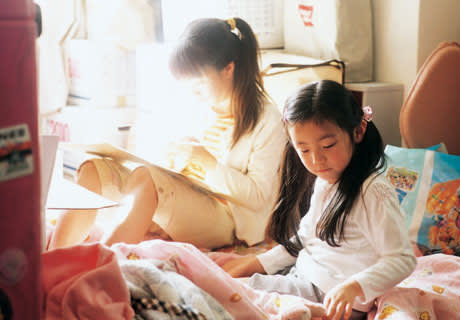The supremely gentle director of After Life returns with another quiet triumph. Based loosely on a 1988 incident where a young girl died after being abandoned by her parents, it begins with an irresponsible mother named Keiko and her children from several fathers. She hides them in her apartment, refuses to enrol all but one in school and then disappears "to work in Osaka," leaving 12-year-old Akira to act as a surrogate parent. The children maintain at first, spending Keiko's money when she sends it, but soon the money stops and Akira is left to deal with the matter of finding food and water after the utilities are shut off.
Kore-eda is too sharp to let this turn into a sensationalistic wallow in squalor. He's less interested in the physicality of deprivation than in its ennui and routine: the survival strategies, the time-killing and boredom while in hiding, and the confused attempts to enter a society from which they've been completely isolated. As Kore-eda hovers on Akira's face while he struggles to figure out what to do, or notes the small things that amuse the children so as to not completely define them by their "social issue" status, we see the director considering the person inside the filthy body the camera sees.
As with some of his other films, there are times when he's a little too restrained. One cries out for at least a single angry outburst or bitter argument, as it's the nature of people under strain and not just movie melodrama. But it's a refreshing hard left turn from the poverty-as-wallpaper of David Fincher or Trainspotting, and has impact far beyond that of those designer-grunge exemplars. (Capri)
Kore-eda is too sharp to let this turn into a sensationalistic wallow in squalor. He's less interested in the physicality of deprivation than in its ennui and routine: the survival strategies, the time-killing and boredom while in hiding, and the confused attempts to enter a society from which they've been completely isolated. As Kore-eda hovers on Akira's face while he struggles to figure out what to do, or notes the small things that amuse the children so as to not completely define them by their "social issue" status, we see the director considering the person inside the filthy body the camera sees.
As with some of his other films, there are times when he's a little too restrained. One cries out for at least a single angry outburst or bitter argument, as it's the nature of people under strain and not just movie melodrama. But it's a refreshing hard left turn from the poverty-as-wallpaper of David Fincher or Trainspotting, and has impact far beyond that of those designer-grunge exemplars. (Capri)
